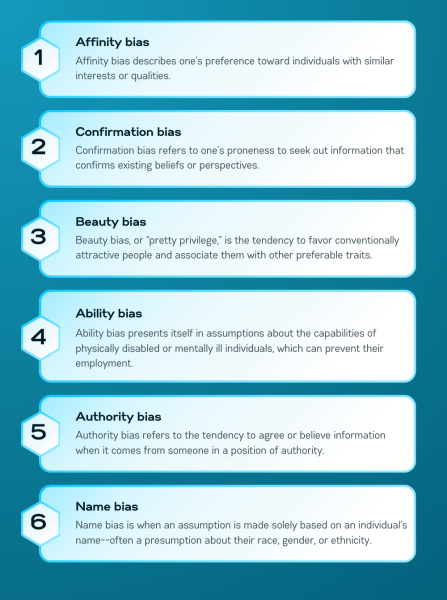A friend’s tightened hold on their purse when a person of color enters the elevator. A family member’s quick assumption about a questionable driver’s gender. While these situations may seem like normal comments or explainable responses, they are often reflective of an unconscious bias. Implicit bias refers to the stereotypes and prejudices that individuals unconsciously carry against a certain group of people. These biases are unavoidable in today’s society, but the potential hurt that these assumptions cause can be easily avoided. So, how can these offhand remarks or actions be called out in a respectful manner, in oneself or in others?

Most importantly, if someone reverts to a generalization, the least effective response is to label them “racist,” “sexist,” or otherwise and end the conversation there. This will only lead to more distress, and if either person is put in a defensive position, communication and eventual understanding will become much more difficult.
According to a 2023 article by Kiana Atkins, Principal Strategist in the Office of Equity, Diversity, and Health at the National Institutes of Health, the first step to confronting bias is to acknowledge its presence. Atkins, and many other sources, suggests taking a test calibrated to inform respondents of their biases.
However, asking someone to take an online test to determine their personal bias is not the most applicable solution in day-to-day, casual conversation.
Still, acknowledgment is a good place to start. Everyone has biases; the goal is not to single out or shame anyone. Most likely, this person did not speak or act with harmful intentions. When interrupting these thoughts, it is important that everyone involved remains understanding.
Calling someone out for their bias is likely going to be uncomfortable. Sharing feedback in private may be easier and make the other person more receptive. Avoid calling someone out in a large group setting or anywhere that will only add tension to the situation.
In confronting these biases, prioritize personal safety. In many situations, this interaction can be awkward but both parties are well-meaning. When there is hostility from either side, the situation may surpass discomfort and become unsafe. If there is any possibility that this will be the case, hold off on confrontation. Ideally, both participants are able to discuss the issue respectfully in the moment and at least one person walks away having learned something. If this seems unlikely or impossible, finding someone better equipped to address the situation may be necessary.
Ultimately, having grace for oneself and for others is crucial if and when these unconscious biases show up. Acknowledging their presence and their potential for harm is the best way to move forward. Once they are called out into the open, it becomes easier to both recognize them and prevent them from affecting future judgments.